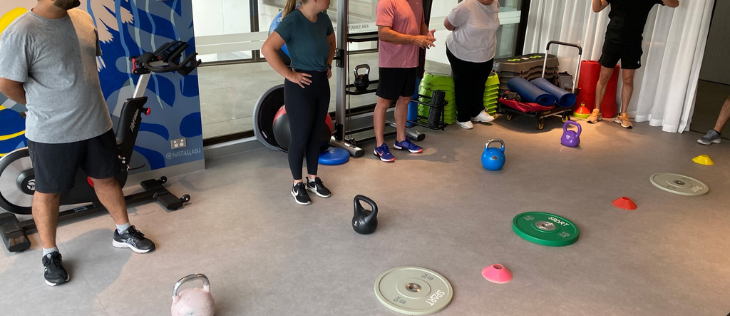This post is over three years old, the information may be outdated.
Written by Stephen Hale-Worrall
Life will always be full of ups and downs, and under most circumstances we are able to ride those waves. There are times however when we experience additional stress related to work, study, or something big occurring in our lives. In those instances, we may need to look to our support network or professional guidance to help us through. When we are riding the waves, it is important to do the best we can to look after our physical and mental health.
Enter, exercise!

Exercise is known to be a powerful tool in promoting physical and mental health. There are several reasons for this including physiological and psychological changes. Regular exercise attenuates your stress response, boosts your immune system, and releases endorphins.
We also know that exercise promotes anti-inflammatory responses in the body and the brain. Quite literally, the more your muscles work, the more of the good stuff it pumps throughout your body. As chronic inflammation from poor diet, obesity, or stress can be implicated in mental illness and mood disorders, exercise serves as an essential intervention. In terms of psychological benefits, exercise or participation in sports helps promote feelings of self-efficacy, which is empowering and can transfer to other areas in your life. You can read more about that here!
From my experience…
Personally, I know that the challenge of an intense workout or run leaves me feeling accomplished. I feel empowered because I was able to push through the physical discomfort associated with the workout (I like to challenge myself). It’s fulfilling!
Then the endorphins kick in and I feel pretty chilled. Plus, I always sleep better when I have had a good workout. I am usually burning a lot of energy during my session and need to recover. There is a lot of research into the effects of exercise on sleep, including right here at Charles Sturt University. Good quality sleep is also important for reducing the stress response and boosting our immune system. It’s like a compounding effect.

From my own personal experience, having exercise to turn to, gave me something familiar to look forward to and something that distracted my mind from my anxious feelings. Those feelings of achievement I got at the end of the workout helped me to address other areas in my life that needed fine-tuning. My confidence in my ability to make changes was enhanced by my ability to challenge myself physically. In fact, I remember identifying weightlifting as an example of achievement when asked to list some key strengths of mine (pardon the pun). There is no doubt in my mind that exercise played a key role in my journey to overcoming and managing anxiety.
But let’s not forget too…
There are times however, that we may still experience severe stress or other forms of poor mental health. Exercise is not a silver bullet for anxiety, depression, or any other mental illness. It can and will often play a role as an adjunct to treatment because health professionals know the benefits. In fact, exercise physiologists play a key role in the support of individuals who are experiencing complex mental health concerns.
Finally, there are a range of resources available to support your mental health and wellbeing as a Charles Sturt student, and you can access them here. Sporting facilities by campus can be found on this page. I encourage you to take the time to do something for your health!










